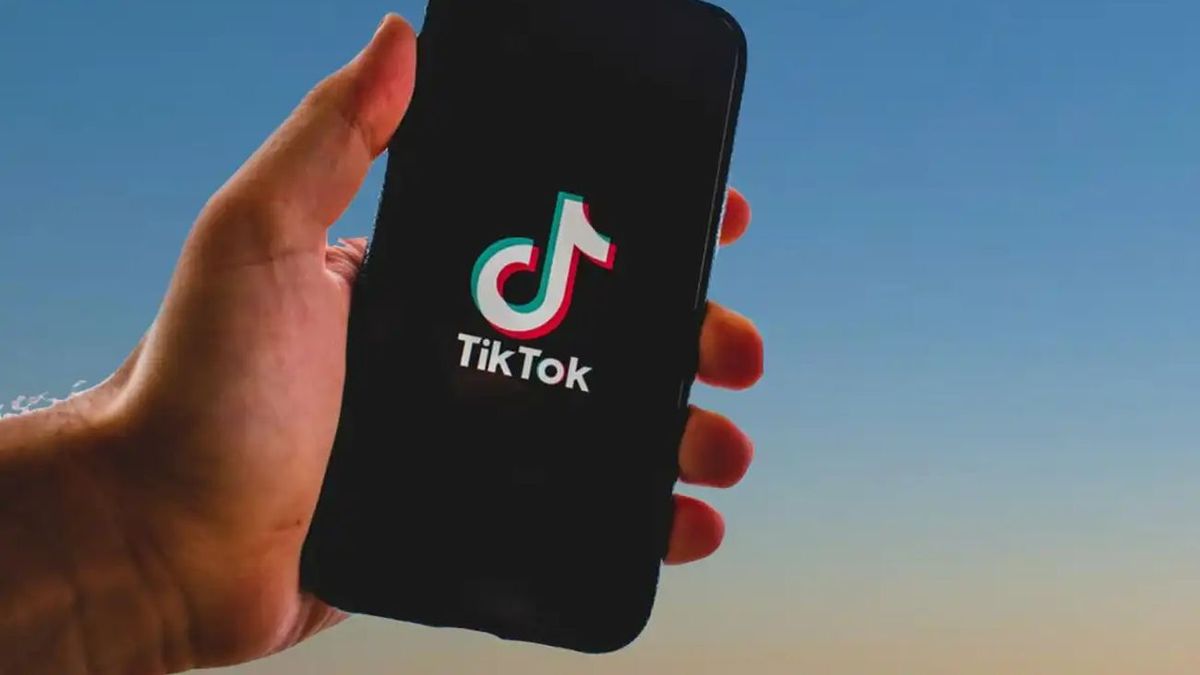In the final stretch of his mandate, the former president of the United States of America (USA), Donald Trump, signed three executive orders to ban the use of Chinese social networks, including the most popular, TikTok. This short video social network, which has more than 100 million users in the US alone, was never effectively banned, since the court established that it could continue operating in US territory while determining whether Trump’s order was or not legal.
Before the end of 2023, his successor, Joe Biden, In a somewhat less bellicose tone, he has called for a review by the Department of Commerce to determine the security problems that these types of applications may pose. In a statement, the White House has specified that its measures are not directed at Chinese apps or companies specifically, but rather seek to promote a “safe, reliable, interoperable and open Internet; the protection of human rights ‘online’ and ‘offline’ ‘and the support of the global and vibrant digital economy.’ A kind of discourse contrary to what the Chinese do, but in reality doing the same thing.
It should be noted that Biden’s idea is not typical of a president or an administration. There is also a bipartisan bill that seeks to “empower the US government to prevent certain foreign governments from exploiting technology services in a manner that poses risks to Americans’ sensitive data and our national security.”
Furthermore, the fear is not just who owns the database, or who has control of the algorithm; but, and, above all, the role in influence operations. “It has gone far beyond its roots as a lip-syncing and dance app; creates trends and fosters deep connections with creators that keep users engaged, video after video. Advertisers want to reach a passionate and dedicated audience, and TikTok can offer it,” its managers highlight. Their numbers indicate this: by 2024, TikTok’s advertising revenue will amount to $23.58 billion.
Therefore, we are referring to a variable that may be equal or more relevant than the 760,000 million dollars that both countries add in bilateral trade: we are talking about the future; better said, how the future is shaped. This is the control of minds, of ideas, of the transfer of information. Of the intelligence processes that can observe the enemy’s weaknesses. That extra that can make the difference when tensions increase and diplomacy breaks down. Above all, when the US permanently flirts with Taiwan, the Achilles heel of any goodwill rapprochement with China. Isn’t it a noble excuse that Taiwan is one of the main chip and semiconductor manufacturing centers, the main supplier to the American industry? Xi Jinping cares little. There are no grays here.
In the meantime, China blocks access to several applications such as Facebook, Instagram and Twitter. Although they are not officially prohibited, they cannot be accessed conventionally. What do the officials of the Asian giant maintain? If Facebook has admitted to providing information to the US government for espionage missions, how can we not protect ourselves?
Under this framework of bilateral conflict, we can – and must – transpolate it to the bipolar systemic logic (the West and its allies vs. Russia, China and company), in a world that is open for each country to choose where to position itself. And in the current global scenario, where the direction is clearly directed towards Orwellian governments, the difficult thing for high politics is to balance domestic logic with the requirements of a truly complex diplomacy. Pragmatism? Sure, the issue is at what cost.
Of course, each government looks after its own interests, understanding its strengths and objectives. In the West (read Canada, France, Denmark, among others) they have restricted the use of TikTok for their government officials. In this regard, a recent report from the National Cybersecurity Center of the United Kingdom establishes that “there could be a risk around the way in which certain platforms access and use sensitive government data.” When talking about espionage, addiction conjugated with blindness, and confidentiality of information, ‘it is preferable to have more than to lack’, as the old popular saying indicates. Or as one of the authors of the recent Digital Services Law (DSA) of the European Union indicates: “It is This is a precautionary measure. “We know there is already limited use of TikTok in the Government, but it is also a good ‘cyber hygiene’ measure.”
The Chinese corporate counteroffensive does not seem to be working. And although ByteDance, The parent company of TikTok has proposed the installation of local data centers in the old continent, ensuring for a long time that it does not share user data with the Chinese Government and that it is managed independently, it has ignored their claims. So does TikTok itself, which rejects accusations that it collects more user data than other social media companies, calling the bans “basic misinformation” decided without “deliberation or evidence.” The thing is that, for experts, all the preventive measures taken do not effectively address the fundamental risks that expose European society to possible Chinese influences. Here there is no turning back from the ‘relaxation’ of the decisions made. Unlimited coercion; and under as many borders as possible.
But it’s not all spy infiltration; geopolitics also plays a role. To cite an example, in the heat of the military conflict between China and India over Kashmir, in July 2020, the border clash between the security forces of both countries in the western Himalayas that left at least 20 Indian soldiers dead and more than 70 wounded, had its cyber retaliation: the Indian government banned TikTok and 59 other applications from China. Of course, not everything is a loss in this zero-sum game: while TikTok, with 120 million users in India, lost $6 billion in that pandemic year (when exponential growth of this type of platforms was precisely observed), Zuckerberg’s Facebook captured an enormous proportion of that gigantic orphan audience.
Finally, the various ‘Big Brother’ from other parts of the Eastern world have other objectives, in this case ‘more philosophical than material’. In October 2020, Pakistani authorities temporarily banned TikTok, claiming that the app promotes immoral content. On the other hand, Afghanistan’s Taliban leaders banned the app in 2022, arguing to protect young people from “being deceived.” Finally, Nepal recently announced that it is going to ban the social network due to the negative effects of this application on the “harmony” of the country. The Minister of Communications and Information Technology, Rekha Sharma, explained that the government made the decision because TikTok is systematically used to share content that “affects family structures and social relationships.” Gagan Thapa, leader of the opposition Nepali Congress Party, raised his voice repudiating the fact and indicating that “it seems that the executive seeks to repress freedom of expression.” An oxymoron that does not exist in the current world in which we live.
In short, we can summarize some fundamental issues. Control (justified?), to rise to the occasion in the face of the overwhelm of external (or internal?) enemies. The only clear thing seems to be the final objective of the government elites: to be able to continue accumulating power and wealth in a diversified, complex and aggressive world, generating an inward fear that allows them to make the needy masses ‘more docile’, precisely, than On the contrary: empower yourself, improve your socio-economic status, have greater freedom to express yourself. Live better, one would say. In the current dynamics of the global situation, difficult. And TikTok, like a transnational entertainment platform, combines, mixes and shows us too much of everything that exists. And something, who says, that we must change.
Economist and Doctor in International Relations. Twitter: @KornblumPablo
Source: Ambito
David William is a talented author who has made a name for himself in the world of writing. He is a professional author who writes on a wide range of topics, from general interest to opinion news. David is currently working as a writer at 24 hours worlds where he brings his unique perspective and in-depth research to his articles, making them both informative and engaging.




